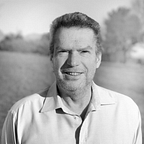A blunted conscience leads to apathy, indifference and, ultimately, oppression
“A clear conscience is a sure sign of a bad memory” (Mark Twain)
Conscience is a cognitive process that engenders emotional and rational associations and responses that relate to a person’s moral philosophy or value system. In general terms, conscience is often described as leading to feelings of remorse when a person behaves in contradiction with their moral values. Conscience, the “voice within”, has close ties with moral development and has been noted as the instinct which forms societies or groups of people that cooperate to create better living conditions for all. This “collective or global” conscience has resulted in attempts to preserve the common heritage of humanity and to protect the rights and dignity of the human being. For example, the United Nations Universal Declaration on Human Rights, Article 1, which is part of international customary law, states: “All human beings are born free and equal in dignity and rights. They are endowed with reason and conscience and should act towards one another in a spirit of brotherhood”.
When conscience is blunted for whatever reason, however, self-interest dominates, translating into behaviour that may be harmful to others. A seared conscience, particularly in business, community, and political leadership, potentially results in seemingly endless pain for those associated with the respective organisations. The following three blunted conscious “results” form a “devastation scale”, with apathy having the least negative impact and oppression having the most negative impact:
- Apathy — “It’s not my problem and, anyway, as an individual, I can’t make much impact or change the situation”. Adopting this attitude eliminates the possibility of having a collective voice on issues that face the human being — like poverty, global warming, pollution, etc. As a result, not much gets done to solve the pressing issues of our day. A current example — only a small percentage of the world’s population recycles waste, many citizens just drop their trash and millions of people don’t take responsibility for the environment.
- Indifference — “It’s a decision that has to be made and I don’t care what the fall-out is going to be, even if it affects the livelihoods and well-being of human beings”. A lack of dialogue and no expressions of care make people very bitter and angry, causing many other negative reactions — even to the point of rioting and violence. A current example — P & O laying off 800 ‘redundant’ employees on a video call, with no preceding attempts at dialogue, problem-solving, notice or promises of assistance.
- Oppression — “I am right. My point of view is the only way forward and I will ensure that I achieve my aims, no matter the cost”. This disregard for others and their welfare is driven by ideological aspirations, selfishness, the lust for power and obsessive greed, and results in the oppression of many, hypocrisy and lies. There are countless examples in history — slavery, racism, the caste system, Nazism, etc. A current example — the indiscriminate acts of violence and war against peaceful and non-threatening populations, like Putin is exercising over Ukraine.
It is easy to say about another: “Such a person seemingly has no conscience”, but the lesson for me is to re-examine my own conscience — am I doing enough to address the plight of the human being in the era and in the area in which I live? Probably not. Has my conscience perhaps become blunted over time where I now no longer see human suffering? Have I got to the point where I just shrug my shoulders and think: “I can’t do much about that situation — that’s the government’s job”. Am I silently oppressing others through my inaction?
A blunted conscience leads to apathy, indifference and, ultimately, oppression. John Maxwell notes: “Success is choosing to enter the arena of action, determined to give yourself to the cause that will better humanity and last for eternity”. I now must live according to my convictions, for, as John Cougar Mellencamp rightly insists: “An honest man’s pillow is his peace of mind”.
Originally published at https://www.stretchforgrowth.com on March 20, 2022.
